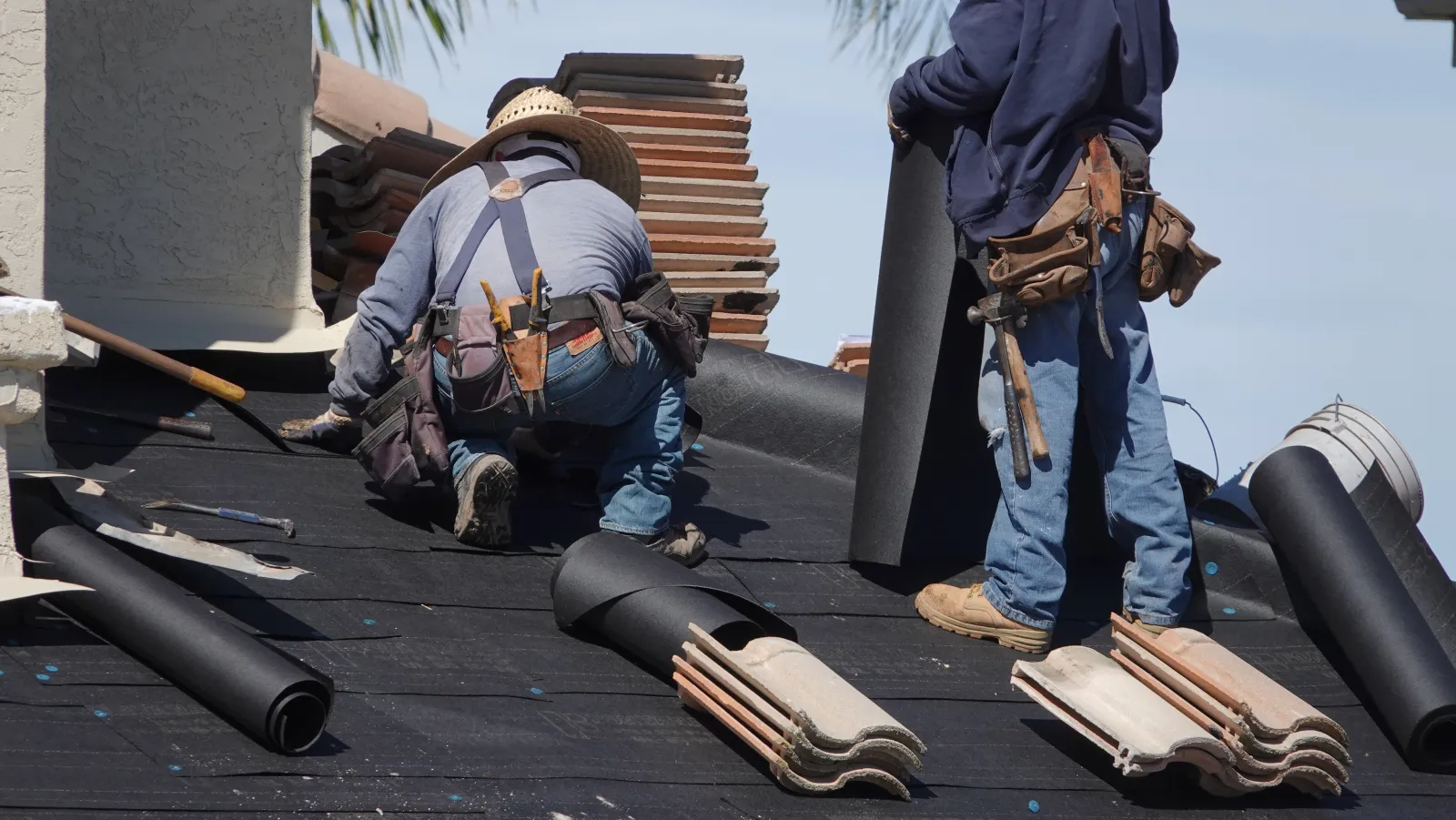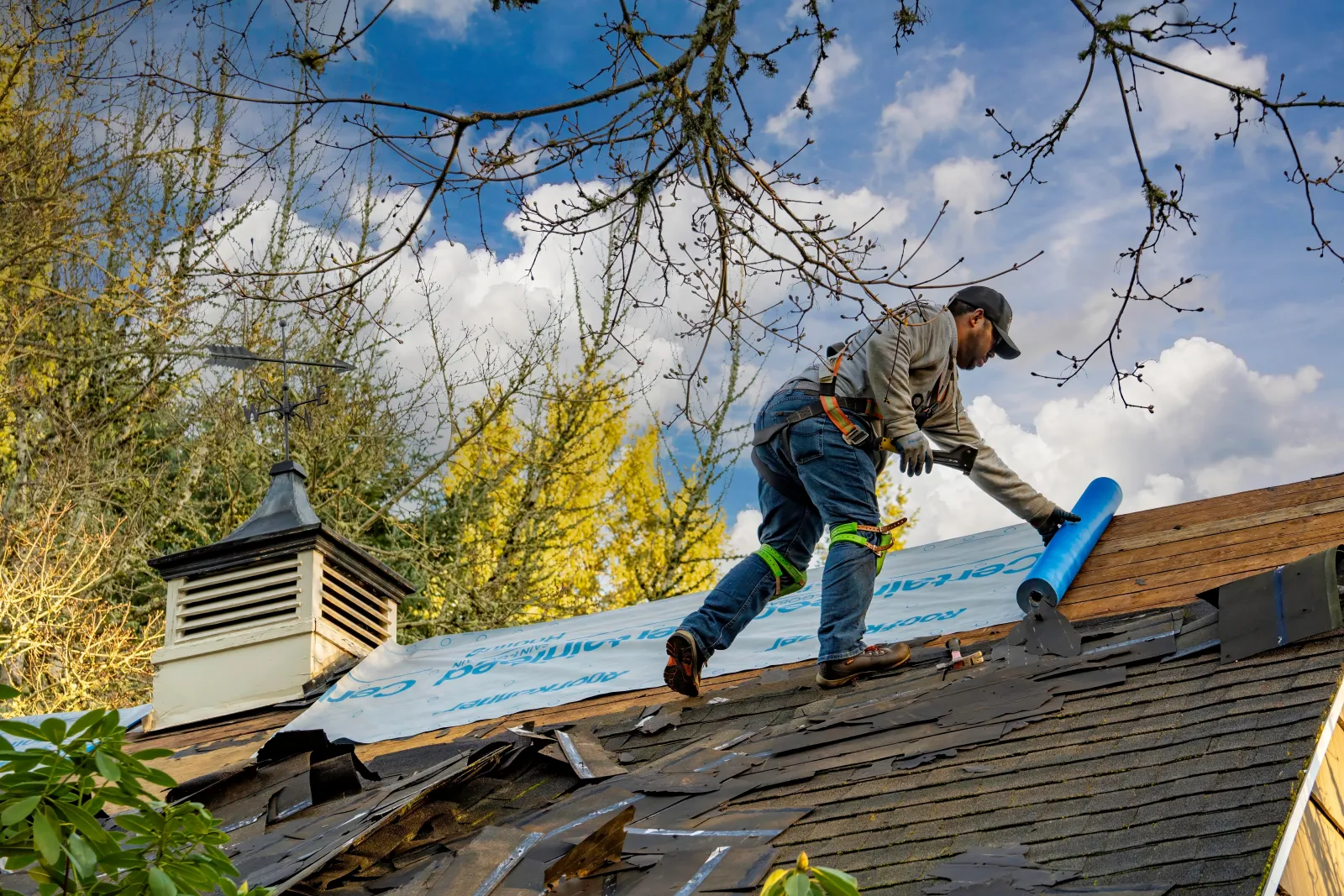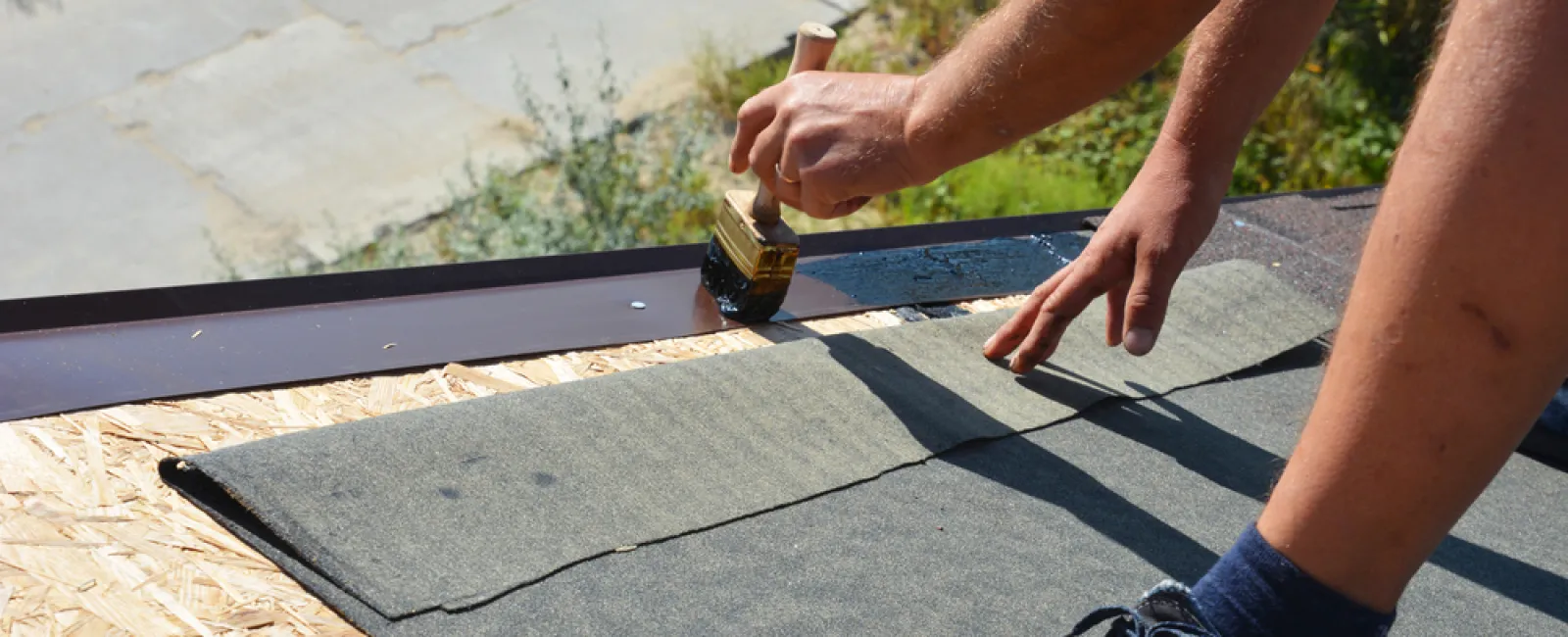Beneath the shingles or tiles that define your roof's appearance
lies a crucial component known as roof underlayment. This layer acts as a
second line of defense, providing additional protection against moisture,
weather extremes, and other potential damage.
What is Roof Underlayment?

Roof underlayment is a vital component of your roofing system, designed to provide an additional layer of protection beneath the outer roofing materials, such as shingles or tiles. This water-resistant or waterproof barrier is installed directly onto the roof deck, safeguarding it against moisture infiltration that can cause significant issues like mold, rot, and structural damage.
The extra layer provided by underlayment is especially crucial during heavy rain, snow, or in areas prone to ice damming. By preventing moisture from reaching the roof deck, underlayment helps maintain the structural integrity of your roof and extends its lifespan. Underlayment also keeps tar from shingles from breaking down the roof deck.
Various types of underlayment materials are available, each
offering unique benefits tailored to different climates and roofing needs.
Whether you're
dealing with extreme weather conditions or looking for added durability, roof
underlayment serves as an indispensable safeguard, ensuring your home remains
dry and secure.
Types of Roof Underlayment
There are several types of roof underlayment, each offering
distinct advantages based on your specific needs.
Often referred to as tar paper, asphalt-saturated felt is made by soaking a base material, like organic or fiberglass, in asphalt. It's moderately water-resistant and affordable, making it a popular choice for many homeowners.
Composed of materials like polypropylene or polyethylene, synthetic underlayment offers superior water resistance and durability compared to asphalt-saturated felt. It's lightweight, easy to install, and excels at protecting against UV rays and harsh weather. The synthetic base is saturated in asphalt and coated with fiberglass.
Ideal for areas with heavy rain or ice, rubberized asphalt
underlayment features a self-adhesive backing that forms a waterproof seal. It
offers excellent protection against leaks and is especially beneficial in
regions prone to ice damming.
Why Roof Underlayment is Important

Roof underlayment is essential for a few key reasons that all contribute to the effectiveness of your roof. First, it acts as a secondary barrier against water infiltration. This is critical because even the best shingles or tiles can sometimes let water through, especially during extreme weather—and we get plenty of that in New England. Underlayment steps in to catch any moisture that sneaks past the outer layer.
Additionally, roof underlayment helps prevent structural damage by keeping moisture away from the roof deck. Moisture can cause mold growth, wood rot, and other issues that compromise the roof's integrity. A dry roof deck means a stronger, more durable roof overall.
Lastly, having a quality underlayment provides peace of mind.
Knowing that your roof has an extra layer of protection can be incredibly
reassuring, especially when facing severe weather. This added security is
invaluable for maintaining a safe and sound home.
The Benefits for Your Roof
Roof underlayment offers numerous benefits that enhance the overall effectiveness of your roofing system. One of its primary advantages is providing extra protection against extreme weather conditions. Whether you're dealing with heavy rain, snow, or strong winds, underlayment acts as an additional barrier, keeping your home safe from moisture and leaks.
Another significant benefit is its versatility. Roof underlayment works well with various roofing materials, including asphalt shingles, metal roofing, and tile. This adaptability makes it an excellent choice regardless of the type of roof you have.
Additionally, underlayment contributes to the stability of your roof. It supports the outer roofing material, making the entire structure more robust and durable. This added stability can be crucial during severe weather events, giving you peace of mind.
Moreover, some types of underlayment have reflective properties that help keep your home cooler in hot weather. This can lead to better energy efficiency and potentially lower utility bills.
Finally, knowing that your roof has an extra layer of protection
can be reassuring. This peace of mind is invaluable, especially when facing
unpredictable weather conditions, ensuring that your home remains safe and
sound.
Keeping Your Roof Underlayment Safe
To ensure your roof underlayment remains effective, regular maintenance is essential. Start with consistent inspections to identify any signs of damage, such as tears or exposed areas. Catching these issues early can prevent more significant problems down the line. Proper ventilation in your attic is also crucial; it helps to minimize moisture buildup, which can compromise the underlayment and other roofing components.
Address any leaks or water damage immediately. Moisture infiltration can quickly degrade the underlayment, leading to mold or rot. Prompt repairs are vital to maintaining the integrity of your roofing system.
Additionally, when it comes to installation or major repairs, hiring a professional roofer is a wise decision. Their expertise ensures that the underlayment is correctly installed and can perform its protective role effectively.
Lastly, keep an eye on the weather and be prepared. Extreme weather conditions can take a toll on your roof, so having a plan in place for regular checks and prompt repairs will help keep your roof underlayment in top condition. With these proactive steps, you can extend the life of your roof and maintain a safe, dry home.
Looking for the right roofing pro for your roofing issues? The team at Master Roofers is here to help you with a quick and easy roof quote. Get in touch online or call us at (603) 623-4973 .
Every component of your roof works together to keep
your home safe and dry. Explore the other parts of your roof on our anatomy
of a roof guide

